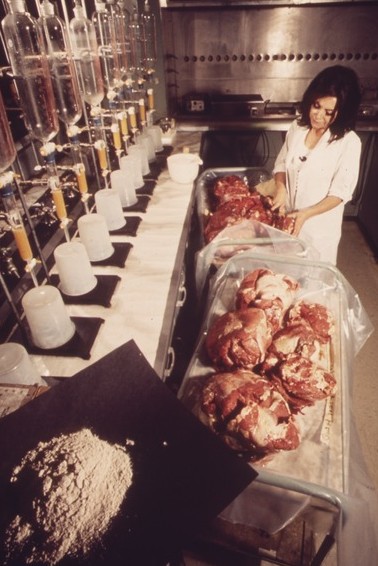Cultured meat isn’t happening today or tomorrow–even those with a vested interest don’t believe it will be commercially viable for at least two decades–but the cost of an in vitro burger has already fallen precipitously from its 2013 price of $325K (condiments included). When taste and price become reasonable, it will be a real market, and one that will destabilize the slaughterhouse and be far less damaging to the environment than the beef industry.
From Ariel Schwartz at Fact Company:
The artificial burger that you—or your science-fiction-loving friends—have been waiting for is real. And now it’s cheap, too.
It wasn’t long ago that test-tube hamburgers—meat made from small pieces of lab-grown animal muscle tissue—were just a glimmer in some mad scientist’s eye. Then, in 2013, the dream of an artificial burger suddenly got interesting. That’s when Mark Post, a researcher at Maastricht University in the Netherlands, announced that he had created a burger made from real meat grown in a lab (20,000 strips of muscle tissue, to be exact) for the unreasonable price of $325,000. Now that price has dropped to just over $11 for a burger ($80 per kilogram of meat), according to a recent ABC News interview with Post.•


